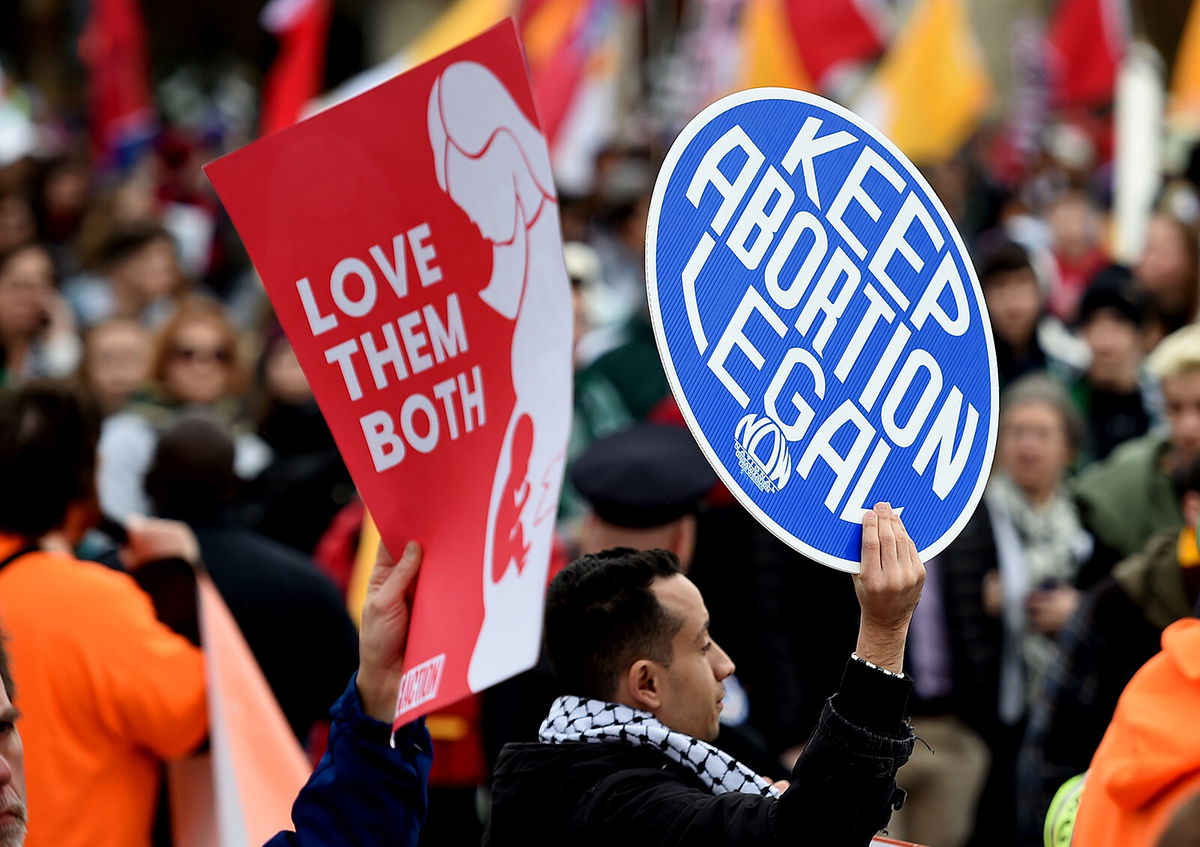Abortion providers ask Supreme Court to block Texas’ six-week ban

Abortion clinics in Texas asked the Supreme Court Monday to block a controversial law that bans abortions at six weeks. Abortion activists here demonstrate in front of the US Supreme Court in January 2020.
By Ariane de Vogue, CNN Supreme Court Reporter
Lawyers for abortion clinics in Texas raced to the Supreme Court Monday, asking the justices to block a controversial law that bans abortions at six weeks and allows private citizens to bring civil suits against anyone who assists a pregnant person seeking an abortion in violation of the law.
The law set to take effect on Wednesday is among the strictest in the nation — barring abortions just after a fetal heartbeat is detected — which is often before a woman knows that she is pregnant.
The emergency application is the latest to come before the conservative court bolstered by the addition of Justice Amy Coney Barrett, asking the justices to act quickly without the benefit of a full briefing schedule and oral arguments on a highly divisive issue.
Opponents of the law say it is a part of a new wave of laws put forward by states hostile to abortion rights with the goal of making it more difficult for courts to step in and block a law before it goes into effect.
The case comes as the justices have already agreed to consider a Mississippi law during their upcoming term that bars most abortions at 15 weeks.
In the filing, abortion providers told the justices that if the law were allowed to go into effect it would “immediately and catastrophically reduce abortion access in Texas” ultimately forcing many abortion clinics to close.
They said that patients “who can scrape together resources” will be forced to attempt to leave the state, and others will be forced to “remain pregnant against their will.”
“In less than two days, Texas politicians will have effectively overturned Roe v. Wade,” Nancy Northup, president of the Center for Reproductive Rights, said in a statement.
Supporters of abortion rights say the Mississippi and Texas laws are a direct challenge to Roe v. Wade, the landmark 1973 opinion legalizing abortion nationwide prior to viability, which can occur at around 24 weeks of pregnancy.
Under the Texas law, abortion is prohibited when a fetal heartbeat is detected and there is no exception for rape or incest, although there is an exemption for “medical emergencies.”
The Texas law includes an unusual provision that allows private citizens to sue health care workers, abortion providers or individuals if they believe they are “knowingly” helping a pregnant person seeking an abortion. That would mean that a citizen could sue someone who agreed to pay for another person’s abortion. Private citizens who prevail in civil lawsuits can also be awarded $10,000 in damages.
In Monday’s filing, the clinics called the law an attempt to “replace normal civil litigation rules” with “distorted versions designed to maximize the abusive and harassing nature of the lawsuits and to make them impossible to fairly defend against.”
A district court denied the state’s attempt to dismiss the lawsuit and had scheduled a hearing for Monday. But last weekend a panel of judges on the 5th US Circuit Court of Appeals issued an order effectively canceling the district court hearing and denying an emergency petition from the clinics to block the law while the appeals play out.
The clinics filed suit in the case not only against Texas Attorney General Ken Paxton, but state judges and clerks in Texas with the jurisdiction to enforce the law. They also targeted Mark Lee Dickson who serves as the director of Right to Life East Texas. Dickson advocated for the adoption of the law and expressed an intent to bring civil enforcement actions as a private citizen under the law according to the District Court.
This story has been updated with additional details.
The-CNN-Wire
™ & © 2021 Cable News Network, Inc., a WarnerMedia Company. All rights reserved.